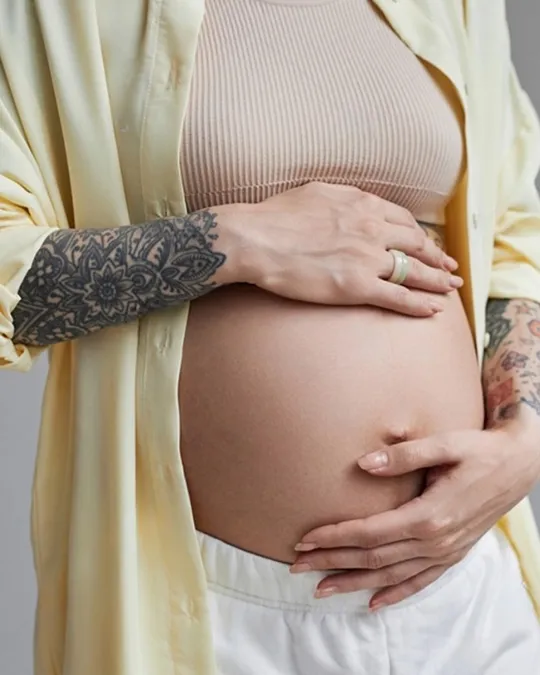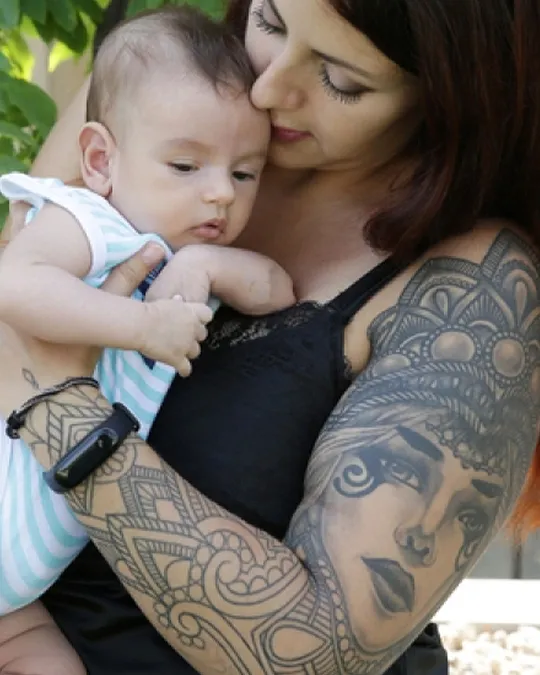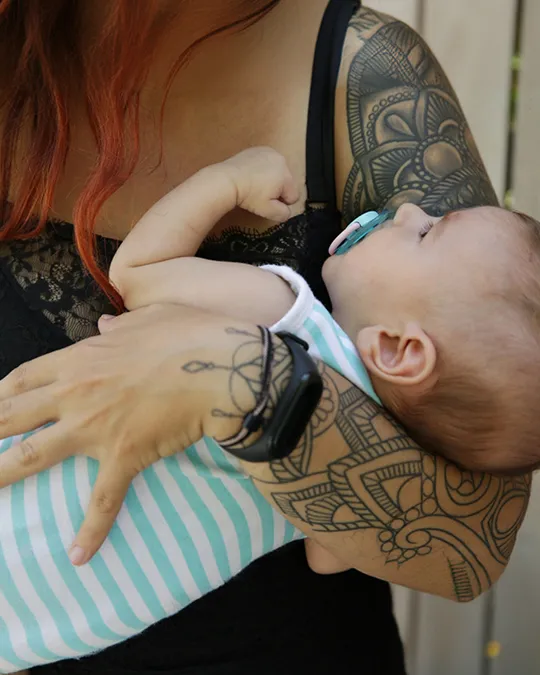Tattoos are a popular form of self-expression, but pregnancy introduces unique considerations for those thinking about getting inked. The physical and hormonal changes that occur during pregnancy can significantly impact the safety and appearance of a new tattoo. It’s important to be well-informed about the potential risks and best practices to ensure both maternal and baby’s health are not compromised.
From infection risks due to a weakened immune system to potential chemical exposure from tattoo inks, there are several factors to consider before getting a tattoo during or post-pregnancy.
This blog aims to address these common concerns and provide guidance for those navigating the decision of getting tattooed during and after pregnancy.
Common Concerns About Tattoos During and After Pregnancy
1. Infection Risks
Pregnancy puts extra strain on your immune system, which makes you more vulnerable to infections. Getting a tattoo during pregnancy is generally not recommended because of the increased risk of infection. An infection can lead to serious complications, including the potential for birth defects or skin infections.
2. Chemical Exposure
Tattoo inks contain various chemicals that can potentially impact the baby’s development. These substances can enter the mother's bloodstream reaching the baby. Some tattoo inks contain heavy metals and other harmful substances that could adversely affect a growing baby. Given the potential risks, it is advisable to avoid getting tattoos during pregnancy to ensure the baby's health and development are not compromised. This caution helps to mitigate any exposure to harmful chemicals that could affect the baby's growth and development.
3. Skin Changes
There are numerous changes during pregnancy, including increased skin sensitivity and stretching. These changes can make the tattooing process more painful, and they may result in unpredictable outcomes for the tattoo's appearance. Stretch marks and other skin alterations can distort the tattoo.
During pregnancy, the skin can become more sensitive, which can make the tattooing process more painful than usual. The stretching and growth of the belly and other areas can also distort the appearance of a tattoo over time. It's also worth noting that the skin may change back after pregnancy, but this can vary significantly from person to person. Therefore, waiting until after pregnancy ensures that the skin is in its most stable state, providing a better canvas for the tattoo.
4. Wait Until After Breastfeeding
It is advisable to wait until you have finished breastfeeding before getting a tattoo. Tattoo ink particles can potentially enter the bloodstream and pass into breast milk, which might affect your baby. Waiting until breastfeeding is complete ensures that no ink particles are transferred to your child, allowing you to prioritize your baby's health while also ensuring your body has fully recovered and is ready for a new tattoo.
5. Let Your Body Heal
Your body is incredibly taxed during pregnancy and childbirth. You should give yourself time to heal completely before undergoing any additional physical stress, such as getting a tattoo. Allowing your body to recover fully helps avoid complications and ensures that you are in the best condition to handle a new tattoo.
The healing process after childbirth varies for each individual, but it generally takes a few months for the body to return to its pre-pregnancy state. During this time, the immune system is still recovering, and adding the stress of a new tattoo could potentially lead to complications. Giving your body ample time to heal ensures that you are ready both physically and mentally to care for a new tattoo.
Making an Informed Decision
Ultimately, the decision of whether or not to get a tattoo during or after pregnancy is a personal one. It's important to weigh the risks and benefits carefully, consult with your doctor, and choose a reputable artist. Here are some key points to consider:
1. Health and Safety:
Your health and your baby’s health are paramount. Any potential risk should be carefully considered, and medical advice should be sought.
2. Tattoo Quality:
Consider the potential for changes in your skin during and after pregnancy. Waiting until your body has returned to its normal state can result in a better-looking tattoo.
3. Peace of Mind:
Knowing that you have taken all necessary precautions can help you enjoy your tattoo without worries.
If you do decide to get tattooed, make sure you're well-informed about the risks and proper aftercare. Proper aftercare is crucial to prevent infections and ensure the tattoo heals well. This includes keeping the tattoo clean, avoiding submersion in water, and following any specific instructions given by your tattoo artist.
In Essence,
Remember, a healthy and safe tattoo experience begins with responsible planning and open communication. Always prioritize your health and the health of your baby. Taking the time to plan and consult with professionals can make a huge difference in your tattoo experience.
While getting a tattoo during pregnancy is generally not recommended due to the risks of infection, chemical exposure, and skin changes. Getting a tattoo after pregnancy, once your body has fully healed, can be a safe and rewarding experience. Always choose a certified tattoo studio that follows strict hygiene protocols to ensure your safety and satisfaction. Your health and your baby’s well-being should always come first.




